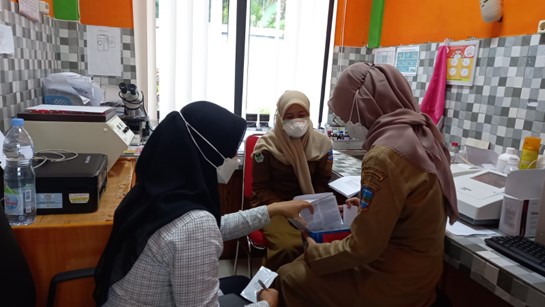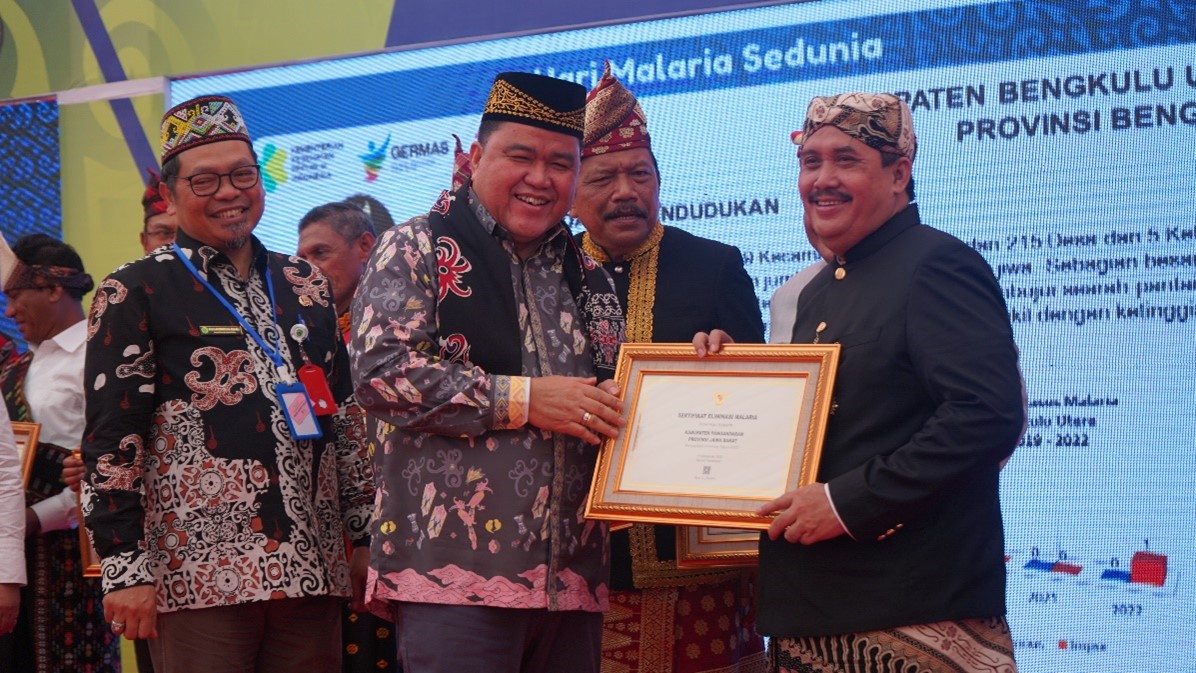Indonesia has made substantial strides in battling malaria. Malaria areas are shrinking and have become more localized. The Indonesian Ministry of Health (MOH) is committed to eliminate malaria nationwide by 2030, employing a comprehensive subnational strategy that spans districts, provinces to islands in the region. Due to these efforts, the Java-Bali region is expected to be verified in 2023 after entire districts successfully interrupted malaria transmission. In Java, there were seven (5%) out of 128 districts having low endemic malaria and targeted to achieve elimination the latest by early 2022. Despite significant progress in Java-Bali region, one last district – Purworejo district is still struggling with malaria transmission after an outbreak occurred during the COVID-19 pandemic in 2021.
WHO and Indonesia’s national malaria control programme (NMCP) launched a comprehensive intervention since November 2018 to accelerate malaria elimination from the entire Java-Bali region. WHO technical experts started collaborating with NMCP and partners to adjust work plans, monitor progress using specific malaria elimination benchmarks, and conduct comprehensive training sessions focused on districts with ongoing malaria transmission, including Pandeglang and Lebak in Banten; Sukabumi, Pangandaran, Tasikmalaya, and Garut in West Java; Purworejo and Banjarnegara in Central Java; and Kulon Progo in Yogyakarta. Since then, close to a thousand health workers from provincial and district health offices as well as from primary healthcare centres (Puskesmas) across these districts improved their knowledge and skills in different areas, including information systems, community mobilization and programme administration and malaria control. The team also facilitated meetings with local stakeholders, such as district leaders, planning departments and private sector companies, to advocate for commitment and support using local resources. As a result of WHO’s hands-on support, two provinces, DKI Jakarta and DI Yogyakarta increased budget allocation for 2023. Moreover, the trained health workers were better equipped to prevent and control malaria cases while the local health system was strengthened to sustain these improvements.

A field coordinator from PUI NOVAKESMAS checked the stock of laboratory test at PHC Legokjawa, Pangadaran district of West Java. (PUI NOVAKESMAS)
However, the COVID-19 pandemic significantly impacted the progress made on the Java and Bali islands. The pandemic reshuffled resources and diverted attention, causing major disruptions to health services and surveillance systems, including for malaria. Despite successfully maintaining a 32 months streak without indigenous malaria cases, Purworejo district in Central Java experienced a resurgence of malaria cases. In June 2021, Purworejo reported the first local malaria case in a health facility, followed by the detection of 69 other cases in the community during efforts to find and identify cases in the area. The spread of malaria cases continued, with a total of 534 indigenous cases reported in 2021 as local authorities expanded case finding activities. Plans for an elimination assessment had to be put on hold.
In response, WHO in collaboration with PUI NOVAKESMAS, a public health research centre within the School of Health Polytechnics in Yogyakarta, intensified their support to contain the outbreak in this district. The team provided guidance and assistance to Purworejo’s district health office’s (DHO) outbreak response efforts, including with mapping areas of receptivity, conducting entomological surveillance and implementing measures to control the disease-carrying mosquitos. These measures included insecticide nets, indoor residual spraying and working with village malaria workers to find new cases in the community. WHO also mentored local authorities during active case finding activities and facilitated collaboration among a multitude of local stakeholders and communities, including government offices, health facilities, police, companies and more. In addition, PUI NOVAKESMAS expanded its coaching to districts that have previously eliminated malaria, preparing them for provincial elimination assessment and regional verification. Baseline and end-line data analyses revealed significant score improvements across five provinces. As of June 2023, the Java-Bali region islands have achieved remarkable success in interrupting malaria transmission in almost of all districts and cities. This includes 127 out of 128 districts (99%) and five out of seven provinces, all of which received malaria-elimination certificates during the commemoration of World Malaria Day in 2023. These provinces are Banten, DKI Jakarta, West Java, East Java and Bali province.
 Province of West Java received the certificate of malaria elimination from the Minister of Health handed over by the DG CDC of MOH. (NMCP, 2023)
Province of West Java received the certificate of malaria elimination from the Minister of Health handed over by the DG CDC of MOH. (NMCP, 2023)
“Good collaboration between the malaria program and educational institutions, such as PUI NOVAKESMAS, can be replicated in other regions," emphasized Dr Hellen Dewi Prameswari, National Malaria Programme Manager in Jakarta.
While progress has been remarkable, the emergence of the COVID-19 pandemic dealt a blow to the fight against malaria. Resurgences in cases were observed, including in Purworejo District. Despite this setback, collaborative efforts involving WHO, educational institutions such as PUI NOVAKESMAS, and authorities and communities from different sectors have shown promise in containing outbreaks and supporting elimination. WHO continues to monitor and provide direct guidance to DHO Purworejo on their progress in containing the transmission. The most recent data from the national malaria surveillance information system (SISMAL) shows no indigenous cases reported since April 2023. The lessons learned from this journey will guide future endeavours, offering hope for the complete eradication of malaria in Indonesia and beyond.
WHO Indonesia’s malaria programme is supported by the Global Fund to Fight AIDS, Tuberculosis and Malaria.Written by Dr Herdiana Hasan Basri, National Professional Officer Malaria
